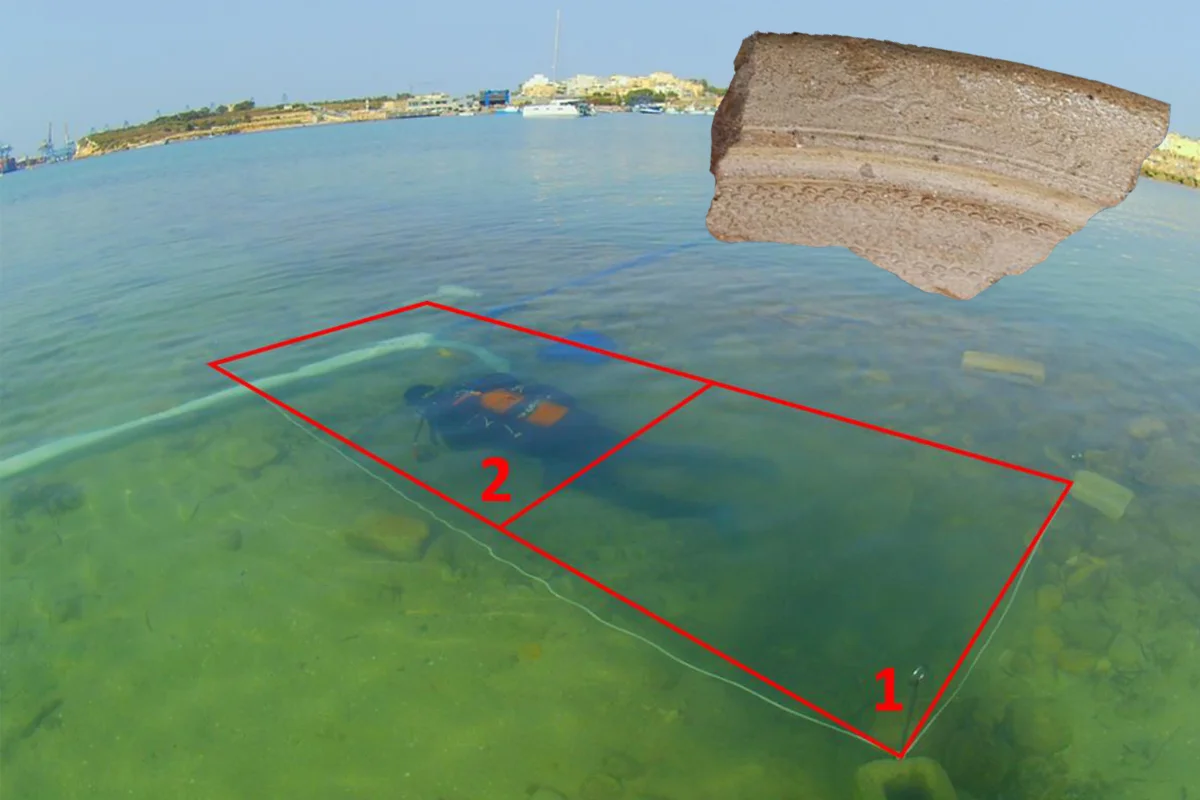Archaeologists from the Superintendence for Cultural Heritage Malta (SCH) have discovered a louterion off the coast of Marsaxlokk in the Magħluq area of South Eastern Malta.
A “louterion” (coming from a word meaning “wash”) is a type of two handled bowl or wash basin used for rituals in ceremonial settings, as well as washing or bathing in domestic households.
Archaeological investigations were in preparation for the construction of a long boulder revetment for protecting the shoreline and habitat from sea erosion. The area has been historically linked to the production of salt thanks to its shallow waters, as shown on maps that date from the early 19th century.
Investigations have recovered 64 artefacts, including a fragment of the louterion which dates from the Late Archaic period around the 6th and 5th centuries BC.
Based on the fragment’s dimensions, the louterion was originally 70 centimetres in diameter and features images of horse-drawn chariots alongside decorative elements.
Louteria depicting horse-drawn chariots are rare but have been discovered in Greek and Etruscan contexts, including locations such as Corinth, Athens, and Greek colonies in Sicily and southern Italy. These basins frequently showcase intricate chariot scenes, symbolising victory or divine favour, and highlight their use in ritual contexts.
A report by the Superintendence for Cultural Heritage Malta (SCH) states that most of the finds consist of ceramic vessels, but researchers also uncovered items made from faunal and marine bone, along with metal and stone objects.
Excavations also located two ancient trenches with carefully stacked limestone rubble. According to the archaeologists, the structures likely predate the artefacts, but dating is proving difficult and requires further investigation.
Header Image Credit : Superintendence for Cultural Heritage Malta (SCH)
Sources : Superintendence for Cultural Heritage Malta (SCH)





